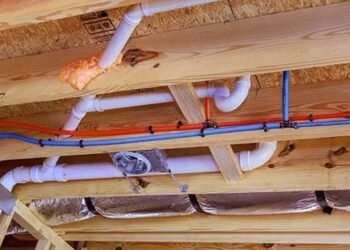Roofers and roofing contractors are often exposed to high-risk situations at work. The National Census of Fatal Occupational Injuries recorded 96 roofing-related fatal injuries in 2018. The risk ratio in the industry has also gone up to 51.5 per 100,000 full-time workers, compared to the general average of 3.5. All of these factors point to the need for insurance for roofing contractors.
Getting the correct insurance as a roofing company or contractor can help cover the high rate of bodily injury associated with the job. It can also protect against property and equipment damage risks, as well as other business-related hazards.
As a roofer or roofing company, below are the recommended insurance policies needed to protect your business and finances.
Business Owner Policy
A business owner policy or BOP bundles general liability, commercial property, and business interruption policies together. This type of insurance is perfect for small roofing companies with less than 100 employees and $5 million in annual revenue. However, roofers or construction businesses with significantly higher annual revenue and over 100 employees may need to purchase each policy separately.
Whether a small or large construction or roofing company, a general liability policy protects you from third-party bodily injury affecting someone who isn’t your employee. Companies like Chapman’s Construction understand the importance of having commercial property insurance, which covers equipment and property damages caused by factors agreed upon. With this coverage, roofers may be reimbursed for damages to their office buildings, garages, storage facilities, etc.
The business interruption or loss of income insurance caters to the business needs in the event of a shutdown, and this loss is usually covered for up to a year.
Workers Compensation Insurance
Roofers work from a height, putting them at risk of slips, falls from ladders or heights, and more. Having workers’ compensation insurance covers these accidents and injuries.
Roofing companies are able to cater to the medical bills and other damages suffered by employees on the job through workers’ compensation insurance. This arrangement saves roofers from expensive out-of-pocket costs and caters to injured workers who are unable to work or earn a living during recovery.
Workers’ compensation insurance generally covers the injured worker’s medical and rehabilitation needs, as well as lost wages, disability, and even death benefits.
Commercial Auto Insurance
Roofing companies with trucks, vans, or trailers designated for business use require commercial auto insurance. This insurance provides coverage for the vehicle, driver, as well as any third party that may be affected in an accident.
Commercial auto insurance comes with various add-ons based on business preferences. Roofers interested in complete protection may choose add-ons like collision coverage, which covers all damages to the vehicle in the event of a collision accident with other vehicles. There’s also gap coverage, which can cover the amount the roofer owes on a leased vehicle that has been involved in an accident. This gap coverage protects the roofer’s finances, especially when their leased vehicle is badly damaged.
Inland Marine Insurance
Larger construction companies serving clients nationwide may need to purchase inland marine insurance. This insurance product covers shipping accidents that could occur when transporting equipment and supplies from one place to another.
Roofers who regularly ship high-value equipment like laptops, computers, networking equipment, servers, large construction equipment, and others can benefit from this. The insurance coverage can cover any damages suffered during transit.
Surety Bonds
Roofing projects are expensive and should be done correctly. Customers are often strict with their choice of roofers because of the project’s capital intensiveness. This may push them to look for licensed, insured, and bonded roofers for their projects. Bonded roofers are those with surety bonds to back their work.
Surety bonds are not insurance policies in the strict sense of it. However, they provide some form of guarantee to the customer. Roofers with surety bonds have a better chance of getting projects from customers, especially government entities. With surety bonds, those roofers are making a financial assurance that they’ll do an excellent job or refund the customer. This guarantee can further improve the roofer’s credibility and reputation.
Builders Risk Insurance
Builders’ risk insurance protects the property upon which the roofer and crew are working. The Best Builders Risk Insurance for Contractors can cover common damages that could occur during the construction or renovation project. The coverage option may also be extended to properties surrounding the site being worked on.
Most property owners often insist that roofers purchase this insurance policy before working on their property. This protects the homeowner from liability and additional costs associated with damages to their property or neighboring properties because of the roofing project.
As a roofing company or contractor, having the above insurance products and policies can save you from extensive out-of-pocket costs. It can also protect your business from shutting down when accidents or unexpected disasters happen.












